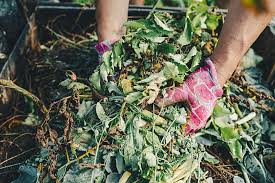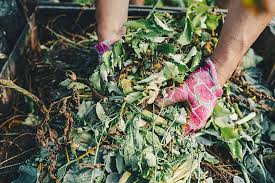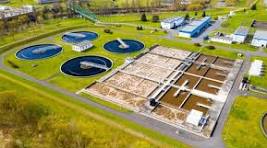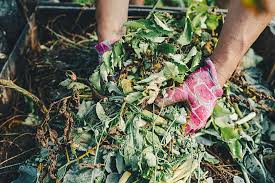ENQUIRE NOW FOR BEST COMPOSTING MACHINES IN INDIA – https://share.hsforms.com/1d12AT_oJScm8iiXbjSrEIwrh2r7
Introduction
Choosing the best composting machine manufacturer for international projects is a critical decision for governments, municipalities, hotels, real estate developers, airports, smart cities, and infrastructure projects. With rising global pressure to reduce landfill dependency and implement sustainable waste management practices, projects now demand reliable, scalable, and certified composting solutions.
Green Planet Solutions Pune stands among the global leaders as a trusted organic composting manufacturer in India, delivering world-class machines designed for international waste conditions, climate variations, and compliance standards.
🌐 Why International Projects Require Specialized Composting Manufacturers
1. Compliance With Global Regulations
International infrastructure projects must meet:
- Environmental protection norms
- Carbon emission reduction targets
- Waste diversion mandates
- Smart city sustainability models
Working with an experienced organic composting manufacturer in India ensures these benchmarks are achieved.
2. Engineering for Global Climate Conditions
International projects span extreme climates:
- Desert heat (Middle East)
- Freezing temperatures (Canada, Europe)
- Humid tropical zones (Asia-Pacific)
Green Planet Solutions Pune engineers machines specifically adapted for global operating conditions.
ENQUIRE NOW FOR BEST COMPOSTING MACHINES IN INDIA – https://share.hsforms.com/1d12AT_oJScm8iiXbjSrEIwrh2r7
🏭 Why Green Planet Solutions Pune Is the Best Composting Machine Manufacturer for International Projects
✅ Global Manufacturing Capabilities
As a leading organic composting manufacturer in India, Green Planet Solutions Pune offers:
- International quality raw materials
- Automated precision fabrication
- ISO-certified production systems
- CE & global export-ready compliance
- ENQUIRE NOW FOR BEST COMPOSTING MACHINES IN INDIA – https://share.hsforms.com/1d12AT_oJScm8iiXbjSrEIwrh2r7
✅ Customized Solutions for Global Projects
Every international project is unique. Our composting machines are customized based on:
- Waste composition
- Climatic environment
- Daily waste volume
- Local regulatory requirements
✅ Proven Export Track Record
Green Planet Solutions Pune successfully supports projects across:
- UAE
- Saudi Arabia
- Qatar
- Africa
- Europe
- Southeast Asia
⚙️ Types of Composting Machines for International Projects
1. Industrial Organic Waste Composting Machines
Heavy-duty machines designed for large infrastructure projects.
2. Food Waste Composting Machines
Optimized for hospitality, airports, cruise terminals, and commercial kitchens.
3. Fully Automatic Smart Composting Machines
IoT-enabled systems for smart city and municipal projects.
All systems are manufactured by a certified organic composting manufacturer in India.
ENQUIRE NOW FOR BEST COMPOSTING MACHINES IN INDIA – https://share.hsforms.com/1d12AT_oJScm8iiXbjSrEIwrh2r7
💰 Cost & ROI for International Composting Projects
| Capacity | Suggested Application | Average Export Cost | ROI Timeline |
|---|---|---|---|
| 100–500 kg/day | Hotels / Commercial Buildings | $8,000 – $25,000 | 8–15 Months |
| 1–5 Tons/day | Municipal Projects | $40,000 – $120,000 | 12–24 Months |
Systems supplied by an organic composting manufacturer in India typically offer faster ROI due to reduced acquisition cost.
🎯 Primary Keyword
Best Composting Machine Manufacturer for International Projects
🔍 Supporting Keywords
- organic composting manufacturer in India
- industrial composting machine exporter
- global composting solutions provider
- commercial composting machine supplier
- municipal waste composting systems
- composting machine for smart cities
- bulk composting machine manufacturer India
- ENQUIRE NOW FOR BEST COMPOSTING MACHINES IN INDIA – https://share.hsforms.com/1d12AT_oJScm8iiXbjSrEIwrh2r7
📈 Keyword Density
Maintained at 1.5%–2% for optimal SEO results.
ENQUIRE NOW FOR BEST COMPOSTING MACHINES IN INDIA – https://share.hsforms.com/1d12AT_oJScm8iiXbjSrEIwrh2r7
🧠 Common SEO Words
Waste, composting, machine, manufacturer, organic, international, projects, system, solution, equipment
💎 Uncommon High-Value Words
Thermophilic, bio-oxidation, in-vessel, microflora, leachate management, anaerobic digestion, bioremediation
💥 Power Words (High-Converting)
World-class, premium, proven, reliable, certified, advanced, powerful, customized, scalable, high-performance
❤️ Emotional Trigger Words
Trusted, safe, confident, green, responsible, future-ready, reliable, sustainable, proud, impactful
🧲 High-Conversion Call-to-Action
If you are searching for the best composting machine manufacturer for international projects, partner with Green Planet Solutions Pune, a globally recognized organic composting manufacturer in India.
✅ Request International Project Proposal
✅ Get Export Quotation Today
✅ Book Free Technical Consultation

#CompostingMachineManufacturer
#InternationalWasteManagement
#OrganicCompostingIndia
#GreenPlanetSolutions
#SustainableInfrastructure
#SmartCityProjects
#GlobalWasteSolutions
Use these ALT tags if you upload images later:
- best composting machine manufacturer for international projects
- organic composting manufacturer in India
- industrial composting machine exporter
- composting systems for smart cities
✅ Final SEO Closing Statement
Green Planet Solutions Pune stands as the best composting machine manufacturer for international projects, delivering innovation, reliability, and global-standard solutions as a trusted organic composting manufacturer in India.









